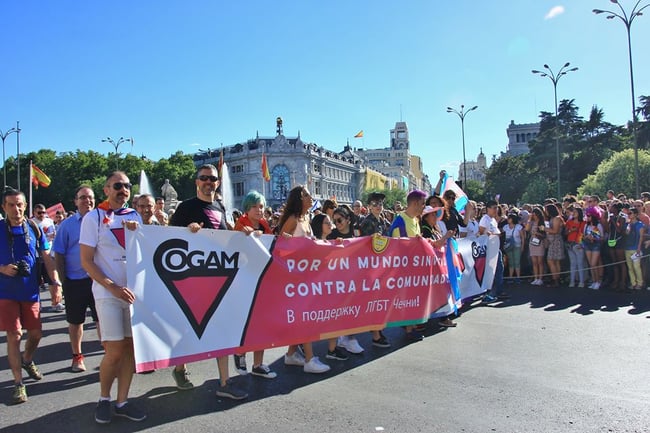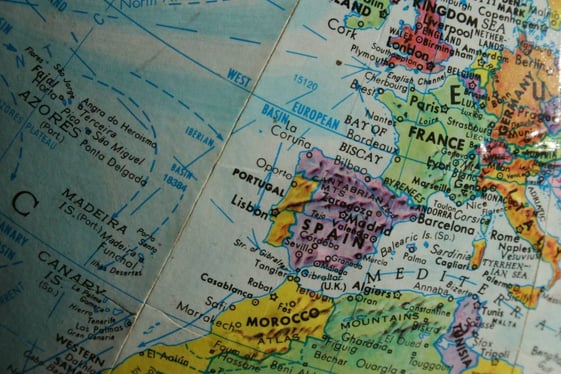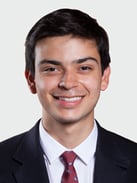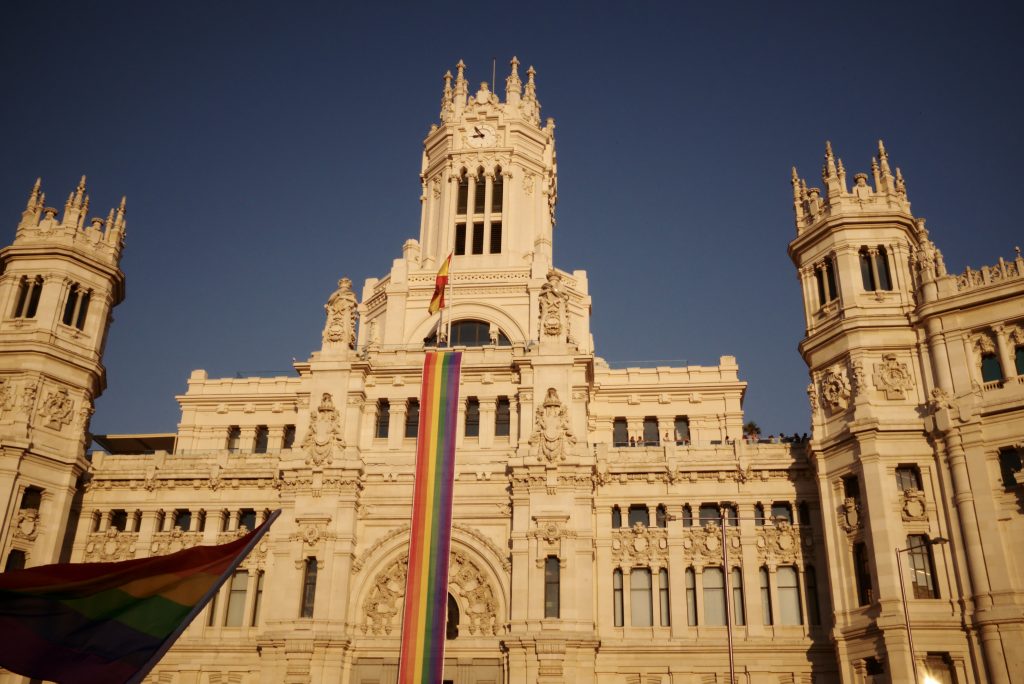Photo by: Nicolas Vigier
“Hola tío, que majo eres!”
Since arriving in Madrid in January for my study abroad program, this was one of the first phases that left me confused when I began my time at the Colectivo LGBT+ de Madrid (COGAM: LGBT+ Collective of Madrid). I had to ask the volunteer who said it, “what does ‘majo’ mean? Why are you calling me ‘tío’ (the Spanish word for uncle)?”
He explained to me that “majo” means someone who is charismatic and likable, while “tío” is equivalent to saying “dude” or “man.”
It wasn't until I started volunteering that I realized the obstacles I face when speaking about my identity as a gay man in Spanish. I am completely fluent in Spanish in all aspects; it was my first language, and it's a lot of times the language I think in. I realized through this volunteer work that Spanish was largely excluded from my queer identity, and tied to that, is my identity as a Latinx person. What does that mean for me?
I started volunteering with COGAM out of a general want to see what the LGBTQ community in Madrid was like, how their experiences differed from mine in the United States, and what needs this community faced in Spain. I specifically serve under the NEXUS part of the group that emotionally assists people that are HIV+ and/or have developed AIDS. This could mean visiting certain members at the hospital to give them company, and or listening to them during difficult times.

Photo by: Sole Barrios
From this experience I’ve seen that HIV is still deeply stigmatized in Madrid, even though access to antiretrovirals is free and accessible to its citizens because of universal healthcare. Most of the men that I encountered at these visits were too embarrassed to get tested or to start treatment on time to prevent developing AIDS. Similar to the U.S., I noticed the same inherent fear towards a virus that is now treatable but has left a legacy of tragedy in our global community.
Before this experience, I rarely used Spanish to describe the men that I love, my struggles and fears as a gay man, and what my development as a gay man has been. Most importantly, tied to all of this is the shame that is ingrained in me for being gay. I have only used Spanish for academia and for familial situations. In many ways, I still felt like a child when I spoke Spanish. It’s the language that I used to communicate with my parents, the language that Catholic-church going Erick would use, the language that I would use to hide my sexuality from family and family friends. It reminds me of the young Erick: shy, easily-embarrassed, and perceptive of a difference that made him feel like an outcast.

So when I began to take these volunteer visits, I had to fight against the knot in my throat that had been tied within me since childhood, and speak. This whole semester I’ve been learning how to speak and develop myself in the same way that I had in English. It was coming out again, and learning to be myself: unapologetic, adamant, empathetic, and strong. I’m learning to dispel the shame instituted by heteropatriachal institutions that has kept many queer people quiet, without love, pushing us to be invisible furthermore.
I’ve come a long way this semester. I’ve learned how to reconcile bit by bit the identities that I developed around two languages. Unwaveringly, I’m overcoming the shame that is tied to my native tongue, the language that ties me to Latinx culture that has been so influential to my activism and self.
Every day I catch a glimpse of that younger Erick, and slowly I’m working to bring him up to me. As if holding my own hand, we cross this road together in hopes to bring a stronger more vibrant voice into hushed territories.

This post was written by Point Scholar Erick Aguilar.
Erick is studying Migration Geographies of Undocumented Labor at Duke University. He is very interested in studying international comparative studies and economics, and dedicates his personal life to advocate for the marginalized communities. Read more about Erick here.

